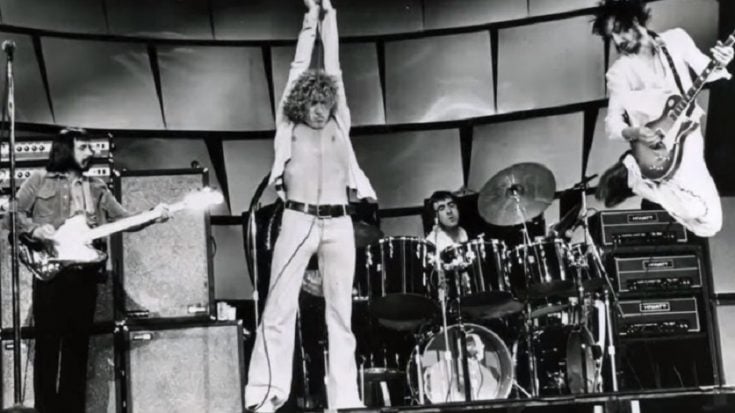Why The Who Only Had One Number 1 Album

The Who - MчstícRhчthmsSєvєn / YouTube
From the onset of the British Invasion, The Who emerged as a crucial force shaping the trajectory of the rock scene. While rock and roll initially thrived as jovial party music, Townshend perceived a deeper significance in the art form beyond mere entertainment.
With each songwriting session, he aimed to construct vivid scenes in the listener’s mind. Despite all the band’s albums attaining significant cultural prominence, only one managed to claim the coveted top spot on the charts.
Who’s Next, the fifth studio album The Who released in August 1971 would claim this distinction. Ironically, it was an album made up of songs salvaged from a failed project.
The record garnered instant acclaim both critically and commercially and has since been regarded by numerous critics as the iconic band’s finest work, earning a place among the greatest albums of all time.
From Chart-Topping Hits to Conceptual Storytelling
The band consistently played around the top of the charts never actually reaching No. 1. From their debut single, “I Can’t Explain”, they were recognized for crafting tunes that could ignite a crowd, delivering both power and passion.
Despite their knack for turning anything into a three-minute hit, Townshend grew weary of producing songs tailored to a compact format.
Venturing into the realm of concept songs, Townshend began composing pieces not designed for commercial appeal, stretching to nine minutes and weaving a narrative through each musical movement.
By the time he conceived the concept for Tommy, the band had evolved into musical storytellers, using their art to narrate the journey of a youth finding redemption through music.
Townshend on Conceptual Crossroads
Despite Tommy‘s considerable success, it peaked at number two on the charts, with only the single “Pinball Wizard” making a notable impact.
However, as the band pressed on, Townshend stood on the brink of his next major transformation with the album Lifehouse.
Although his initial intention was to create a project surpassing his original rock opera, the band’s struggles in realizing the concept led him to abandon the entire endeavor.
Turning to the songs he had already composed, Who’s Next emerged as the album of rescued songs from that period, showcasing some of the band’s most exceptional creations.
https://twitter.com/who_gallery/status/1725151735763571181
Finally Reaching the Peak of the Charts
Lacking the conceptual elements, this album would become The Who’s sole chart-topping achievement, reaching No. 1 in 1971.
Beyond the album charts, the band also enjoyed significant success with independent hits, producing tracks like “Baba O’Riley” and “Won’t Get Fooled Again”, which ascended the singles charts.
Despite the absence of the initially envisioned narrative structure, the direction of the story becomes evident upon examining the lyrics.
Observing Roger Daltrey’s vocal delivery in “Baba O’Riley”, it’s easy to envision the tale of a man joining hands with his lover in a quest for new lands where they can coexist harmoniously, fueled by the transformative power of music.












